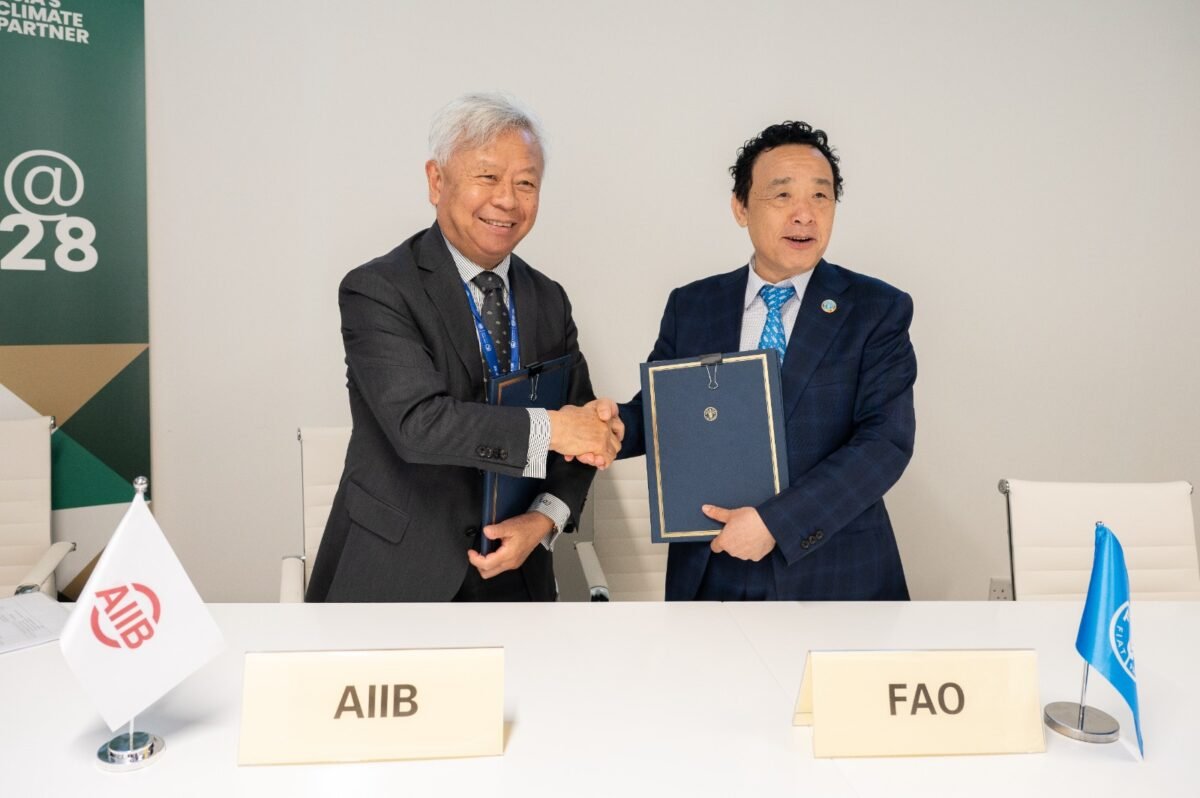AIIB-FAO partnership to boost rural agrifood systems
The two organisations will specifically collaborate on helping countries meet the ambitious targets of the 2030 Agenda for Sustainable Development
The Asian Infrastructure Investment Bank (AIIB) and the Food and Agriculture Organisation (FAO) of the United Nations signed a Memorandum of Understanding that recognises the critical role of investment in rural infrastructure, nature resources management and climate resilience in transforming agrifood systems. The two organisations will specifically collaborate on helping countries meet the ambitious targets of the 2030 Agenda for Sustainable Development.
AIIB and FAO will explore collaboration opportunities in infrastructure investments that improve water resource management, agriculture and irrigation productivity, logistics and climate change adaptation and resilience. The two organisations will focus on digital solutions and innovations that increase efficiency productivity and preparedness. Special attention will be given to addressing the social development needs of vulnerable groups and gender issues.
“AIIB and FAO are united by our vision of realising human prosperity through sustainable development,” said Jin Liqun, AIIB President and Chair of the Board of Directors. “This partnership represents our commitment to working together to finance sustainable Infrastructure for Tomorrow. By partnering with the FAO, together we help to ensure efficient and effective use of resources and expertise across the development sector.”
The two organisations will specifically collaborate on




